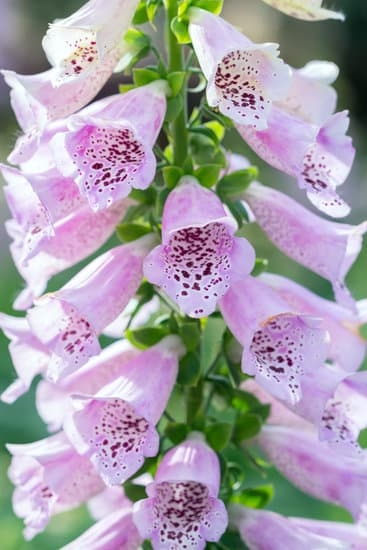Introduction
Alfred Austin was an influential figure in both the literary and gardening communities. His writing, most famously The Glory Of Gardening, is seen as one of the foremost works on how to enjoy the beauty of gardens and understand their potential and importance to the world environment. Through his book, he taught people how to properly care for a garden, from appropriate plant selection to weeding and soil amendment. He also provided tips on common pests, disease prevention, landscaping designs, and other helpful hints for a full gardening experience. Austin’s references offered readers a thorough knowledge of garden history as well as practical advice.
The impact of Alfred Austin’s The Glory Of Gardening is seen in gardens today all around the world. Anticipated changes in climate have created an urgency for new forms of gardening that can withstand extreme weather events. Through his work, he emphasized growing more drought tolerant plants and using native species that are adapted to their current conditions. In addition, he stressed how gardens serve as havens for wildlife such as birds, pollinators and native animals – an important concept that continues to be observed closely through global environmental efforts. Lastly, his advice helped create a pathway for passionate gardeners everywhere who wished to take part in helping conserve nature while learning more about horticulture techniques in the process.
Historical Context
Alfred Austin was born in 1835 and served as England’s laureate from 1896 until his death in 1913. Before becoming Britain’s Laureate, he worked as a journalist, editor and poet. He published one of his most popular works, The Glory of Gardening, in 1906. It is a work that explores the beauty and joy of gardening from a poetic perspective.
The Glory of Gardening is rooted in the idea of an “Idyllic English Garden” which was developed during the Victorian era. At this time, gardens were seen as a direct reflection of their owners. It was believed that how one tended to their garden reflected upon the owner’s character attributes such as orderliness and diligence. As such, gardeners tried to create environments which contained high levels of order, precision and aesthetic appeal through their use of plants, sculptures, paths and other features.
During this time period gardening was also seen as having health benefits. Some believed it played an important role in alleviating stress while others hailed it for its calming effects on those who had medical conditions such mental health issues or physical ailments like asthma.
In his book Alfred Austin attempts to capture the spirit of these Victorian beliefs regarding gardening—the idea that tending to one’s plot can reveal profound truths about life and relationships with nature. He uses lyrical language to describe how gardening can help to beautify even the harshest landscapes without use of any flashy ornaments or accessories often associated with French style gardens from the same period; instead, he emphasizes simplicity and harmony within his scenes. Overallby focusing on capturing the essence beauty found within nature itself he sought to remind readers that “The glory of gardening is no superficial thing…it makes possible all other things”
Themes
Alfred Austin’s The Glory of Gardening conveys powerful messages about the beauty, harmony and balance that come from gardening. In this classic poem, Austin takes his reader on a journey of self-discovery as he encourages them to connect with the natural world around them. He uses vivid imagery and symbolism to convey his themes of nature, harmony, and beauty. Austin speaks of the joy that comes from spending time in nature and appreciating its wonderful gifts – flowers, birdsong and the calming sound of wind through leaves. He extols the wisdom of creating a garden at one’s home where one can experience peace, serenity and respite amidst the noise and commotion of life as well as seek inspiration from its quiet beauty. He emphasizes how gardening allows us to co-exist in harmony with our environment while being creative with plants, shapes and designs within it. He reminds us that creating and nurturing something beautiful is an act of self-expression that can bring immense satisfaction to both body and soul. Ultimately, Austin wants us to take the time to enjoy all that gardens have to offer – not just their physical beauty but also the spiritual connection they give us with the world around us.
Critical Reception
Many critics have praised Alfred Austin’s The Glory Of Gardening for its comprehensive overview of the basics of gardening, from cultivation and maintenance to design, decoration and dietary benefits. Its emphasis on traditional methods while acknowledging advances in gardening technology has been particularly well received. As a poet, Austin was also lauded for his lyrical writing style that engaged readers on an emotional level.
Moreover, several critics noted the relevance of Austin’s philosophy to other aspects of life. They posited that gardening not only provides physical sustenance but also promotes mental clarity through its contemplation of nature’s complex rhythms. Furthermore, they argued that it can teach important values such as patience, respect and cooperation. Some argue that Austin’s ideas are not groundbreaking but serve as a relevant reminder of how gardening should remain at the forefront of human life despite technological innovations.
Legacy
Alfred Austin’s book The Glory of Gardening is widely renowned for being a definitive work on gardening during the early twentieth century. Since its publication in 1910, it has gone on to become one of the most widely read and referenced books in modern botanical literature. Austin’s work has had a lasting legacy on the field of gardening, both technically and socially.
On a technical level, Austin wrote about various specifics of gardening such as how to properly plant, tend and cultivate gardens, as well as what were considered to be useful maintenance techniques. He also described various habitats and soil conditions that were ideal for different types of plants while at the same time introducing numerous species and other resources useful to gardeners. This knowledge was incredibly valuable to those who followed in his footsteps and who used his advice in order to create lush plots of land complete with beautiful flowers, fruits, vegetables and more.
Socially speaking, Alfred Austin encouraged an approach to gardening that was artsy—one that relied heavily on aesthetics as opposed to merely functional purposes such as feeding oneself or supplying materials for clothing or construction. He made statements about how gardening could be used as a means of self-expression through beauty, whilst also advocating for keen observations about the environment which helped bring awareness to larger ecological issues (e.g., conservation). Through his work he has inspired future generations of hobbyists and professionals alike—continuing Austria’s legacy into our own time which can still be seen today in the many gardens around us.
Inspiration
Alfred Austin’s poem, “The Glory of Gardening”, is a beautiful reflection on the joys of gardening and the effects it can have on us. Through his poetry, Austin has provided insight into how gardening can bring emotional wellbeing and satisfaction. He shows us how spending time in nature and tending to plants can be an effective form of self-care that helps alleviate stress, anxiety, and sadness. He emphasizes how creating something beautiful through gardening can help build self-esteem and inspire creativity. In this way, his work has been instrumental in helping people recognize the power of gardening for their mental health and wellbeing.
Beyond its mental health benefits, Austin’s poem also encourages us to think about the importance of sustainability when we garden. He suggests that growing our own food can not only provide sustenance for ourselves but also for our community through donations or exchanges with neighbors.This serves as a reminder that we should strive to be mindful of our environment when we garden so as to not cause any unnecessary harm or damage to nature.
In short, Alfred Austin’s poem “The Glory of Gardening” has helped shape our understanding of gardening in many ways by offering a poetic exploration into some of its most rewarding aspects, such as emotional healing, creative expression, and environmental sustainability. The insight provided by this immortal piece of literature continues to be highly relevant in modern times and provides inspiration even today.
Closing
The legacy of Alfred Austin The Glory Of Gardening will forever be remembered among gardeners around the world. Not only did his book provide a detailed insight into the creative potential of gardening, but it also demonstrated how much enjoyment could be found in the simple beauty of nature. His insights and reflections continue to inspire people today, helping them to create, nurture and protect gardens that are works of art and true sanctuaries. Austin’s work was truly groundbreaking and will live on through generations as a testament to the joys of gardening. He was an advocator for nurturing our connection with nature and teaching us all how to become healthier, happier, and more harmonious individuals–something that we still seek out today. Despite his philosophical writing being largely overshadowed by other poets during his lifetime, Alfred Austin The Glory Of Gardening is sure to find its rightful place as one of the most influential works on gardening ever written.

Welcome to my gardening blog! I am passionate about plants and enjoy sharing my knowledge and experiences with others. In this blog, I will write about everything related to gardening, from tips on how to get started to updates on my own garden projects.





